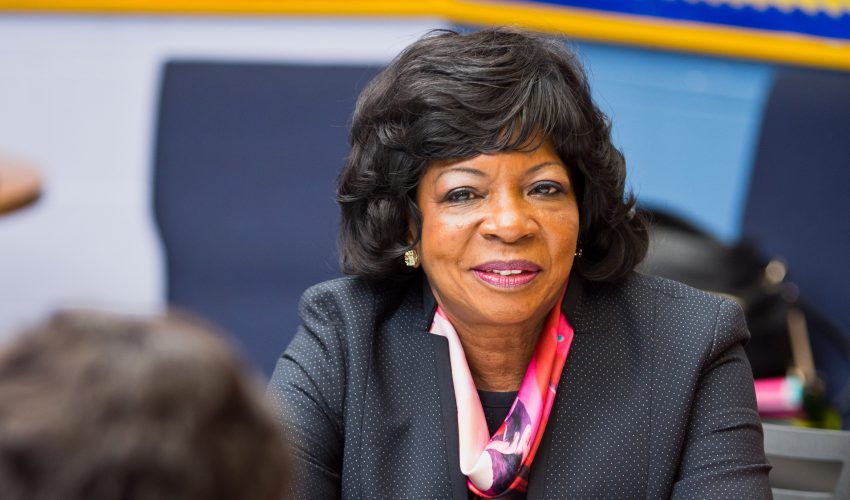Numbers tell the story:
In the 38126 zip code, six of every 10 people live in poverty, and for children, that increases to nearly eight in 10.
Circumstances that dire often create a world where survival is your only goal, says Ruby Bright, executive director and chief administrative officer of the Women’s Foundation for a Greater Memphis (WFGM). And that perpetuates the cycle of intergenerational poverty.
WFGM tackles poverty using the nationally recognized two-generation approach, focusing on programs that help mother and child understand and achieve economic stability.
Still, it can be hard to focus on programs designed to help when you lack basic life necessities, Bright says.
“When a mother’s top priority is keeping a roof over her child’s head, personal care falls by the wayside,” Bright says. “It’s not that she doesn’t want a job; it’s that she does not see how she can physically and mentally get to that point when meeting basic needs is a challenge.”


In such situations, medical care isn’t always top of the priority list, Bright says, but neglecting it can cause greater barriers:
- If children don’t get proper vaccines, they can’t start school.
- If a mother doesn’t have her dental needs addressed, she may be too embarrassed to go on job interviews.
“With the families served in 38126, the barriers are all around them each day,” she says. “So the supportive solutions must be all around them, too.”


Power to the people
To empower women to create positive pathways to improve their lives, WFGM connects them with classes, resources and organizations that help build knowledge and self-sufficiency.
WFGM partners with and financially supports more than 22 organizations that tackle everything from women’s financial literacy to job readiness and leadership development.
WFGM also works with the Memphis Housing Authority, Urban Strategies Inc. and the Department of Housing and Urban Development to identify women in precarious living situations as possible program candidates. Wraparound services have been proven to have the greatest impact when addressing the massive wealth and wellness discrepancies in the city.
“Back in the ’90s, a study of Memphis looked at women and girls and found vast differences across the city,” she says.
“In 38126, the average income was less than $5,000 per year, compared to 13 miles away where the income was $80,000.
“People were not making a living wage, and the people affected most were single female heads of household who were also people of color.”
The women had a variety of needs:
- Finding childcare
- Securing services for special needs children
- Escaping domestic violence
but the common obstacle was always finding and paying for those services.
WFGM supports classes that get women in the door, which starts to build trust and gives them a network of people they can count on.

Someone who’s been there
Leslie Shaw took one of those classes in 2005, when her government-subsidized housing was shut down.
Led by Dr. Ruby Payne, the eight-week workshop taught Shaw how to build her resources to create a more prosperous life. Finding the help that she needed inspired her to volunteer and pay it forward for other women in need.
“In the area of 38126 you have to have someone who’s been there to really understand what these people are going through,” she says.
“Having progressed through difficult things, I want to set a good example and let people know we’ll help them find what they need.
“As long as you get up every day and hit the ground running, you’ll get to the next place.”
WFGM’s latest goal is to recruit 10 community health ambassadors for the new Vision 2020 Health Ambassador program, in which women will mentor women in the area of health.
The team is already surveying residents about health barriers and plans to use that information to connect people with the services they need most. Peer ambassadorship has proved successful for WFGM in the past — in 2014 they helped 50 families secure childcare using a similar tactic — so they anticipate demand will be high, especially for dental, eye care, and annual exams.
“It’s so important to keep people healthy and to deal with problems early so people don’t end up in an ER for something that didn’t have to become a crisis,” Shaw says.
“If you talk to people, they’ll tell you what they need, and with a little help, they’ll improve on their own.”

Photos by Steve Jones
The post Independent Women appeared first on Better Tennessee.

